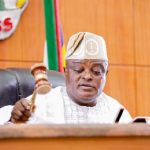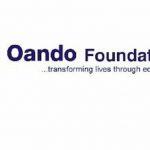World
Africa At Valdai and First Ministerial Conference: Assessing What Next for Russian-African Partnership?
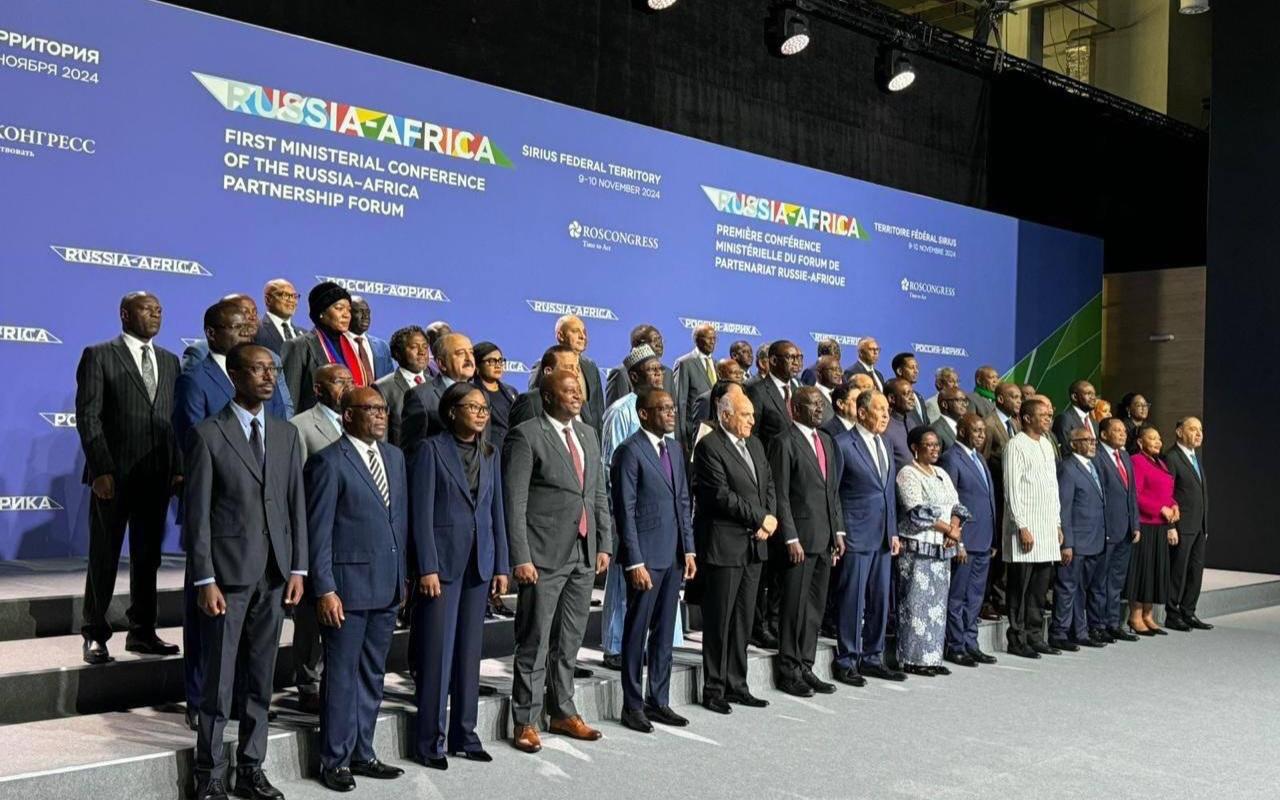
By Kestér Kenn Klomegâh
At the Valdai Discussion Club’s meeting held on 7th November 2024, President Vladimir Putin at the plenary session continued to build indepth discussions on Russian and African bilateral relations, Russia’s passion to support Africa’s attainment of economic sovereignty. It was explicitly noted, and this noticeably reflected in the declarations adopted after the first and second Russia-Africa summits, that Africa needs to liberate itself from the trapings of neo-colonialism of the United States and Europe.
That was not the first time. Valdai’s experts have been interested in Russia’s policy in Africa, particularly in this contemporary era of evolving multipolar architecture and new world political order. Africa is an integral part of the focus in the Global South. Russia has already held two symbolic summits and outlined certain economic directions for Africa. In practical terms, Russia with its previous experience with Africa during the Soviet times, now has the potential to assert as an investment leader in Africa. African leaders have unreservedly expressed their preparedness for mutual economic cooperation and in other fields, voiced their support for building a new world order through the association BRICS+ (Brazil, Russia, India, China and South Africa).
Given the proven fact that Russia certainly has both the financial and technological capability for investing in public infrastructure, in addition to providing necessary security in conflicting regions in Africa. Conflicts in Africa are partially as a result of under-development, and persistent weak economic development and rising levels of unemployment in the society. It is abundantly clear that with its multivectoral foreign policy, Russia has presented itself as a reliable partner, and currently is leading African countries to confront western hegemony, political exceptionalism and dominating power. It has offered guarantees of being in position to support Africa to attain its economic sovereignty but, for now, largely remained as a virtual investor. Russia’s economic presence in Africa is still comparatively weak, even after the symbolic summits held in Sochi and St. Petersburg.
Notwithstanding, African leaders consider efforts at reforming international institutions and Africa’s incorporation into their structures would facilitate the process of attaining a better economic status, enable the expected transitions from the current trends of neo-colonialism and further move away from blames of state management inefficiency, development unsustainability and frustration of democracy. Across the continent, leaders and the elites have shown their inability to mitigate crises and to mobilise sufficient resources, including financing and human for promoting their sustainable development goals.
Undeniably, the Valdai Club represents a critical area of research for humanity, experts dive into useful details or debate the causes of ongoing developments now around the world. In his contribution at Valdai, an Indian expert Rasigan Maharajh, rightly explained that “common security can only be enhanced by actively reducing these inequalities in world systems, actively promoting knowledge sharing, and ensuring equitable opportunities for the development of all and sundry.” And the global majority seems to obviously prefer multipolarity.
As relations are developing, moving ahead with concrete policy decisions should be an ideal direction. Quite often, there has been a lot of positive momentum in developing remarkable cooperation, several bilateral agreements have been signed and yet little noticeable results. Russians get irritated by the statement indicating little impact after series of business meetings, conferences and summits.
At the Valdai meeting, Professor Irina Abramova, Director of the Africa Studies Institute had the opportunity to ask Vladimir Putin a few questions relating to Africa. Specifically she wanted to know Putin’s views over the impact of Russia’s relations with Africa based on the fact that Putin has repeated his popular phrases, at the Kazan’s BRICS press conference that Africa, together with Southeast Asia, are new centers of global growth. Today, at Valdai meeting, Putin repeated this same idea.
Professor Abramova, in addition, stressed the fact that in the conditions of fierce competition – China, India, and old global players, and even Turkey, the (Persian) Gulf countries, and Iran are working seriously in the continent, – Russia needs to find its niche, where it would be the best for Africans. But, dozens of negotiations with African leaders have been held these several years, with some more than once. Was there any one promising direction in these negotiations that all African leaders would talk about?
As expected, Putin reiterated all those popular Soviet-style rhetoric, ultimately reflecting the historical support for Africa to attain political independence from colonial rule, western exploitation and for sovereignty, for the creation of some basic conditions for economic development. Officials have indicated that colonial trends in the African political system and economic spheres constitute impediments for Russia to effectively invest in Africa.
Without mincing words, Putin stressed further at the Valdai meeting: “these neo-colonial instruments have been preserved in the economy by Western countries, but also in the field of security. In general, we will work intensely, responsibly, systematically in all directions.”
The first Russia-Africa ministerial conference was also held, on 9–10 November 2024, in southern coastal city of Sochi as per the decisions reached at the Second Russia–Africa Summit. The business programme included around 20 panel sessions and thematic events focusing on perspectives for Russia–Africa cooperation in the areas of security, economics, and humanitarian engagement. It aimed at building on the outcomes of the Second Russia–Africa Summit, bringing together more than 40 foreign ministers from Russia and Africa, the African Union Commission, and executive bodies of regional integration organizations. In attendance were approximately 1,500 representatives from financial institutions, Russian and African businesses, civil society, academia, and the media.
There was, as always, those similar themes for dialogue between Russia and Africa. “Cooperation with the countries of the African continent is now one of the common priorities, noting that there are existing wide prospects for cooperation as demonstrated by the large numbers of African partners to the conference,” stated Anton Kobyakov, Adviser to the President of the Russian Federation, Executive Secretary of the Organizing Committee for Russia–Africa at Roscongress Foundation.
Available on the Kremlin website, Vladimir Putin greetings to the first ministerial conference participants read: “African countries enjoy a growing prestige on the international stage. By pursuing a constructive and peace-loving foreign policy, they are playing an increasingly important role in addressing major international matters. For its part, Russia attaches particular importance to strengthening relations with its African partners. We are united by our aspiration to building a just multipolar world order based on genuine equality and the rule of law and any form of discrimination.”
In absolute terms, Russia showed preparedness to facilitate the implementation of large infrastructure projects, without publicly mentioning financial allocation. It further pointed to issues of promoting the development of trade and economic relations between Russia and Africa, while emphasizing on the possibility of creating favourable environment and conditions.
There is absolutely no need to repeat multi-dimensional contents from speeches of President Vladimir Putin and that of Foreign Minister Sergey Lavrov here. But an insight into all the previous official statements, there have already been layout steps for concrete areas of cooperation. What remains are valuable and thorough examination of Russia’s potential focused directions in Africa policy. Many have indicated that Russian and African leaders really have to take off existing barriers for promoting economic development, and this could have positive implications for African countries, and particularly for Russia as one of the leaders of the emerging multipolar world.
Aside setting priorities, Russian and African leaders working-style of state-to-state and government-to-government format, both have to broaden joint parameters to include the private sector operatives, the civil society, entrepreneurial diaspora, youth and women, to pave pathways for broader relationship between Russia and African countries. The questions arising from the historic first ministerial conference provided an additional strong basis, and one more step forward, especially coordinating the implementation of joint projects involving potential Russian operators in the spheres of trade, economic and investment partnership, and embrace new mechanisms and on suitable ways to bolster multifaceted relations between Russia and Africa.
World
Irvine, Dreaminfluence Accelerate Growth of Africa’s $3bn Creator Economy
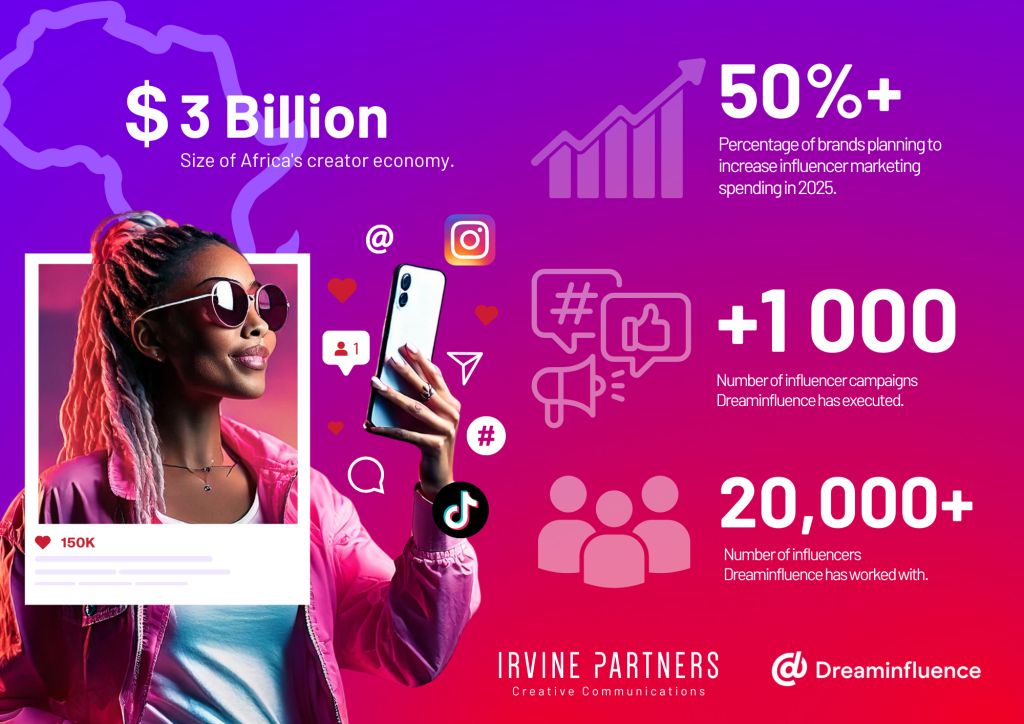
Irvine Partners, a leading creative communications agency with offices in Africa and Europe, has signed an exclusive licence with Dreaminfluence as their Africa partner. Dreaminfluence, an all-in-one platform that empowers brands to build and scale influencer marketing has executed 1,000s of influencer campaigns and worked with over 20,000 influencers.
This innovative platform’s digital capabilities will support the content creators who are driving Africa’s rapidly expanding $3.08 billion creator economy. Despite creators on the continent taking advantage of platforms like TikTok, African creators still earn significantly less than their counterparts in other regions, despite producing high-quality content. Furthermore, infrastructure limitations and a digital skills gap hinder the progress of the creator ecosystem.
Monetization should not be out of reach for African creators says Rachel Irvine, CEO of Irvine Partners. She adds that “Dreaminfluence provides digital infrastructure and connects creators to brands, backing their work so they too can unlock opportunities while brands can grow their reach with authentic content that resonates with audiences.”
Dreaminfluence CEO, Mads Wedderkopp, explains “We have worked with many leading brands in the Nordics and are excited to finally bring our platform to Africa through this exclusive partnership with Irvine Partners.”
“The decision to work with Irvine Partners as our Africa partner was a no-brainer, given the roster of clients they serve, and their continental and European footprint.”
Some of the leading brands that use Dreaminfluence for their influencer campaigns are Nivea, L’Occitane, and Estee Lauder Group.
How it works
Dreaminfluence was founded in 2018, to transform influencer marketing from being about affiliate links and discount codes to focusing on actual brand ambassadorship. This vision is translated into the features that Dreaminfluence offers, for both brands and influencers.
These brand features include:
-
Discovery of influencers: Brands can find the right influencers for their campaigns, without wasting time on influencer outreach
-
Campaign analytics: Track campaign performance, report the value and identify the best-performing influencers
-
Building relationships: Influencers move from short-term brand campaigns to long-term brand ambassadorship
-
Campaign management: Manage influencer payments, product shipping and secure content usage rights
-
Paying multiple influencers at a time with one click
For influencers, the features are:
-
Apply to join a brand team or campaign through the app
-
Be selected as part of the ambassador team
-
Join new campaigns when they are published
-
Run all campaign admin including payments, content ideas, and approvals through the app
The Dreaminfluence difference
Irvine Partners is constantly working with influencers across Africa on different campaigns for its clients and Dreaminfluence provides an innovative way to streamline agency relations with leading and emerging content creators on the continent.
Mohale Moloi, Content Director at Irvine Partners explains that “creator marketing studies tell us that more than 50% of brands plan to increase their spending on influencer marketing in 2025. But making sure these campaigns deliver results across the whole marketing funnel requires an in-depth understanding of market nuances, which is what we bring to the table.”
By working with a dynamic platform like Dreaminfluence, Irvine Partners will take influencer campaigns to the next level by combining local insights with a platform that makes everything from campaign selection to payments more efficient.
“We are most excited about the actionable campaign data and high ROI that Dreaminfluence offers,” says Moloi.
World
Cameroonian Diaspora Congress: An Essential Vector for Cameroon’s Influence in Russia
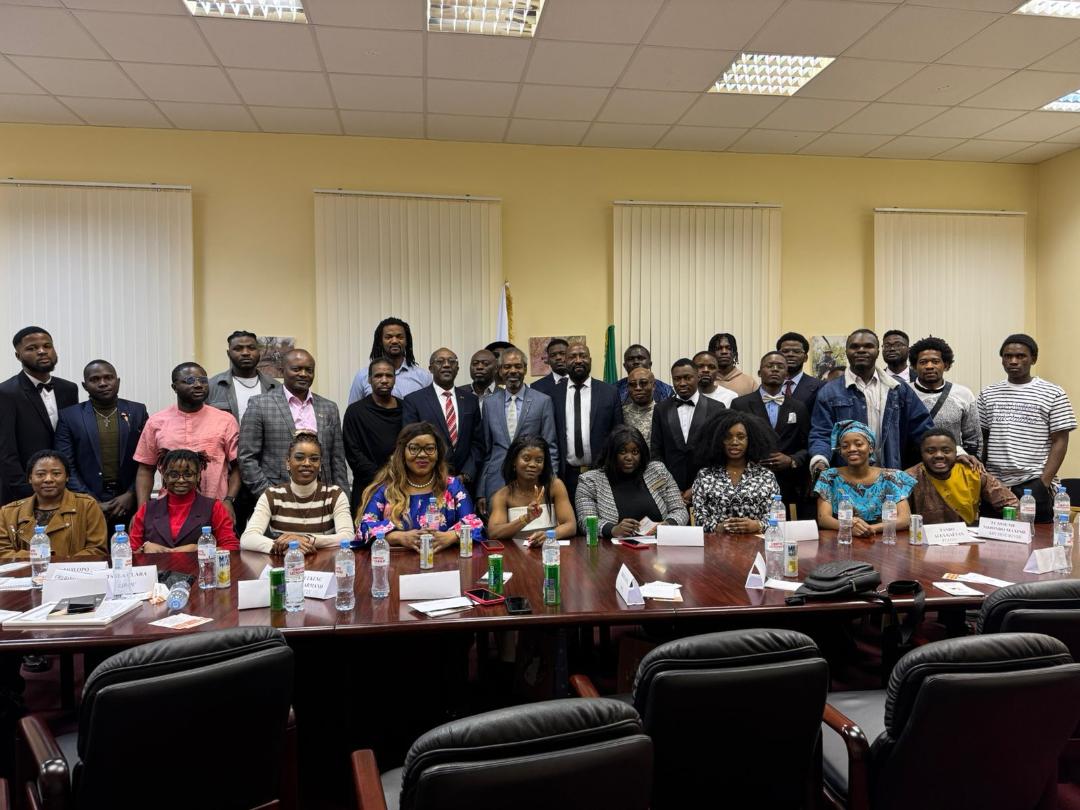
By Louis Gouend
The Cameroonian diaspora in the Russian Federation, although relatively recent, constitutes an essential vector for Cameroon’s influence and the maintenance of strong ties with the nation. In this perspective, and following a fruitful video conference on January 27, 2024, with the Minister of Youth and Civic Education, it was decided to organize, on February 8 and 11, 2025, the first celebration of Youth Day within the Russian diaspora.
This unprecedented initiative, benefiting from the Minister’s valuable support, aimed to consolidate patriotism and the spirit of initiative among Cameroonian youth residing in Russia, by offering a framework for exchange and promotion of Cameroonian cultural wealth. It mobilized Cameroonian students, young professionals, and entrepreneurs established in Russian territory.
The commemoration of the 59th anniversary of Cameroon’s Youth Day took the form of a dual celebration: a physical meeting at the Cameroonian Embassy in Moscow on February 8, 2025, and a virtual meeting on Zoom on February 11, 2025. These events brought together a total of more than 150 participants from over 50 cities in Russia, representing diverse backgrounds, including presidents of Cameroonian associations, members of the Diaspocam executive council, deans, honorary guests, and embassy officials.
The diaspora had the honour of welcoming, via video conference, Mr Mounouna Foutsou, Minister of Youth and Civic Education, whose encouragement and vision were a source of inspiration. The Minister outlined the productive initiatives implemented by the Cameroonian government in favour of its youth in the diaspora in Russia, emphasizing the willingness to support projects led by young entrepreneurs through a specific support mechanism and the operationalization of the guarantee fund.
During his address, the Minister recalled the commitments made during the video conference of January 27, 2024, emphasizing the need for increased collaboration between the government and the youth of the diaspora. He stressed the immense potential represented by this youth and reaffirmed the government’s commitment to addressing their concerns.
Among the initiatives put in place to support the youth of the diaspora, he mentioned:
- The Guarantee Fund for Young Entrepreneurs (FOGAJEUNE), which finances projects in four key sectors (agriculture, digital economy, industry/crafts and technological innovation).
- The special DIALYJ window, designed to promote co-ventures between young people from Cameroon and the diaspora.
- The Program to Aid the Return and Integration of Young People from the Diaspora (PARIJEDI), which facilitates the return and integration of young people in Cameroon.
“We express our deep gratitude to the Cameroonian government and personally to Minister Mounouna Foutsou for their support of our initiative,” said the President of Diaspocam, Louis Gouend. “Thanks to their assistance and the support of the Cameroonian Embassy in Russia, we were able to organize this important event, which has strengthened ties between the diaspora and Cameroon.”
Aware of the positive impact of this first celebration, we hope that this innovative initiative will be included in the calendar of activities of the Ministry of Youth and Civic Education for the years to come.
Diaspocam establishes a legal platform to come together, helps each other, interacts and establishes viable strategic networks and partnerships; presents, shares and expands proven diaspora business models; promotes and assists businesses and investments in Cameroon.
It strengthens a good image of Cameroon in Russia while maintaining close liaison with the Cameroonian and Russian governments and any other representative body pursuing objectives similar to those of the Association. Cameroonian Diaspora in the Russian Federation is a public organization which encourages participation, representation, diversity and cooperation between Cameroon, African diaspora and Russian society.
World
African Union Launches Credit Rating Agency to Rival Fitch, Others
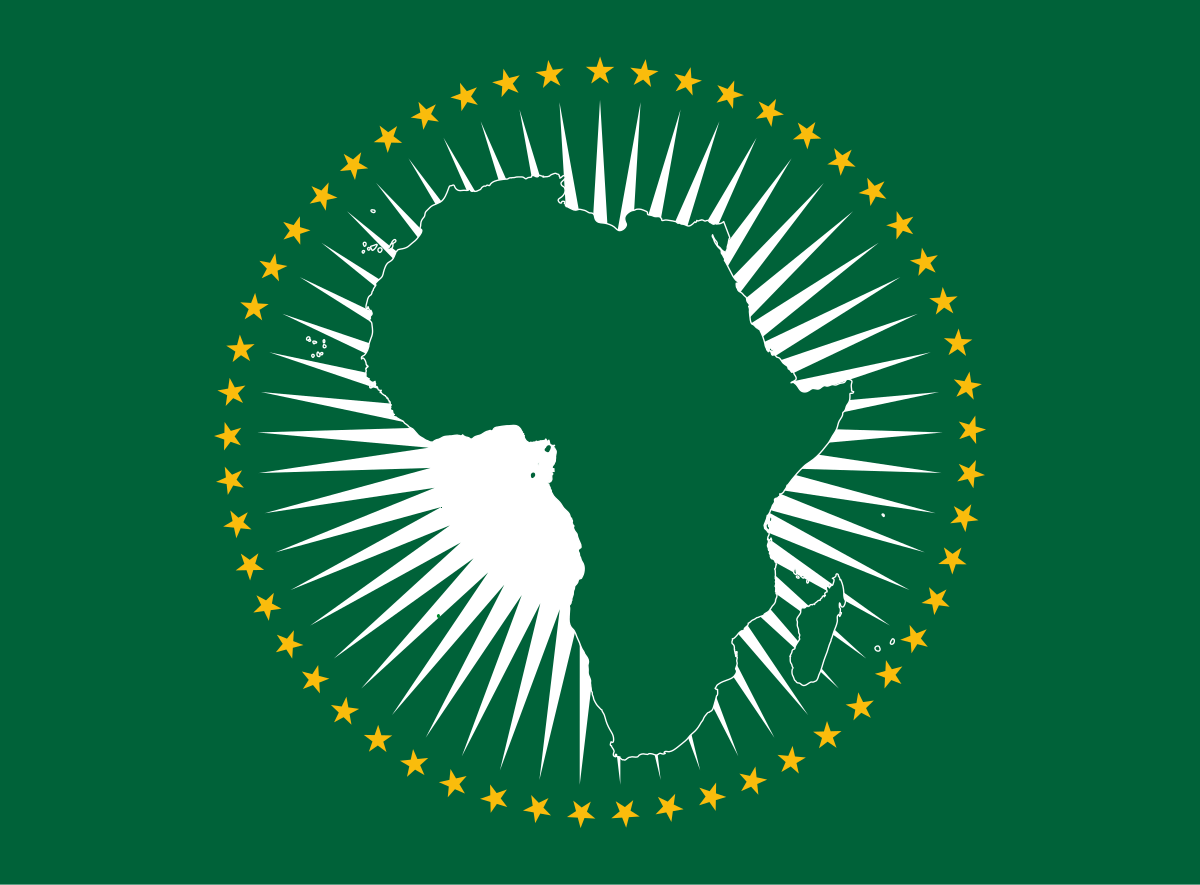
By Adedapo Adesanya
The African Union has announced the launch of its rating agency, the African Credit Rating Agency (AfCRA) to provide accurate ratings for countries on the continent.
According to Kenya’s President, Mr William Ruto, while unveiling the new agency at an AU event held in Addis Ababa, Ethiopia on Friday, AfCRA will address biases by global rating firms.
Global firms like Moody’s, Fitch and Standard & Poor (S&P) are some of the ratings agency which provide insights into African countries to aid investors and stakeholders.
There have been criticisms that these ratings lead to higher borrowing costs for African countries and make it harder for them to access international financial markets.
“Global credit rating agencies have not only dealt us a bad hand, they have also deliberately failed Africa,” Mr Ruto stated during the launch.
“They rely on flawed models, outdated assumptions, and systemic bias, painting an unfair picture of our economies and leading to distorted ratings, exaggerated risks, and unjustifiably high borrowing costs.”
According to President Ruto, improving Africa’s rating by one notch could unlock $15.5 billion in additional funding for the continent, which could help replace a significant portion of official development assistance or be invested in Africa’s infrastructure needs.
Despite Africa’s abundant natural wealth, only two African nations are currently ranked as investment grade.
“It is time for Africa to use the right scale, one that reflects its true weight,” Mr Ruto added.
The African Union has previously criticized global rating agencies’ characterization of African economies. In January, the AU pointed out that Moody’s Ratings’ fluctuating assessment of Kenya’s outlook was flawed.
“As the continent continues its march towards economic integration and resilience, the establishment of the African Credit Rating Agency (AfCRA) represents a pivotal step in asserting Africa’s position on global financial governance.”
The agency aims to provide fair, transparent, and development-focused credit ratings that reflect the realities and potential of African economies.
The idea comes more than a year since the AU officially announced its plans to move forward with the project since September 2023.
The push for an African credit rating agency became viable in 2022 when Senegal’s former president Macky Sall, then the chairman of the AU, called for a new system to “end the injustices” faced by African countries.
-

 Feature/OPED5 years ago
Feature/OPED5 years agoDavos was Different this year
-
Travel/Tourism9 years ago
Lagos Seals Western Lodge Hotel In Ikorodu
-

 Showbiz2 years ago
Showbiz2 years agoEstranged Lover Releases Videos of Empress Njamah Bathing
-

 Banking7 years ago
Banking7 years agoSort Codes of GTBank Branches in Nigeria
-

 Economy2 years ago
Economy2 years agoSubsidy Removal: CNG at N130 Per Litre Cheaper Than Petrol—IPMAN
-

 Banking2 years ago
Banking2 years agoFirst Bank Announces Planned Downtime
-

 Sports2 years ago
Sports2 years agoHighest Paid Nigerian Footballer – How Much Do Nigerian Footballers Earn
-

 Technology4 years ago
Technology4 years agoHow To Link Your MTN, Airtel, Glo, 9mobile Lines to NIN







